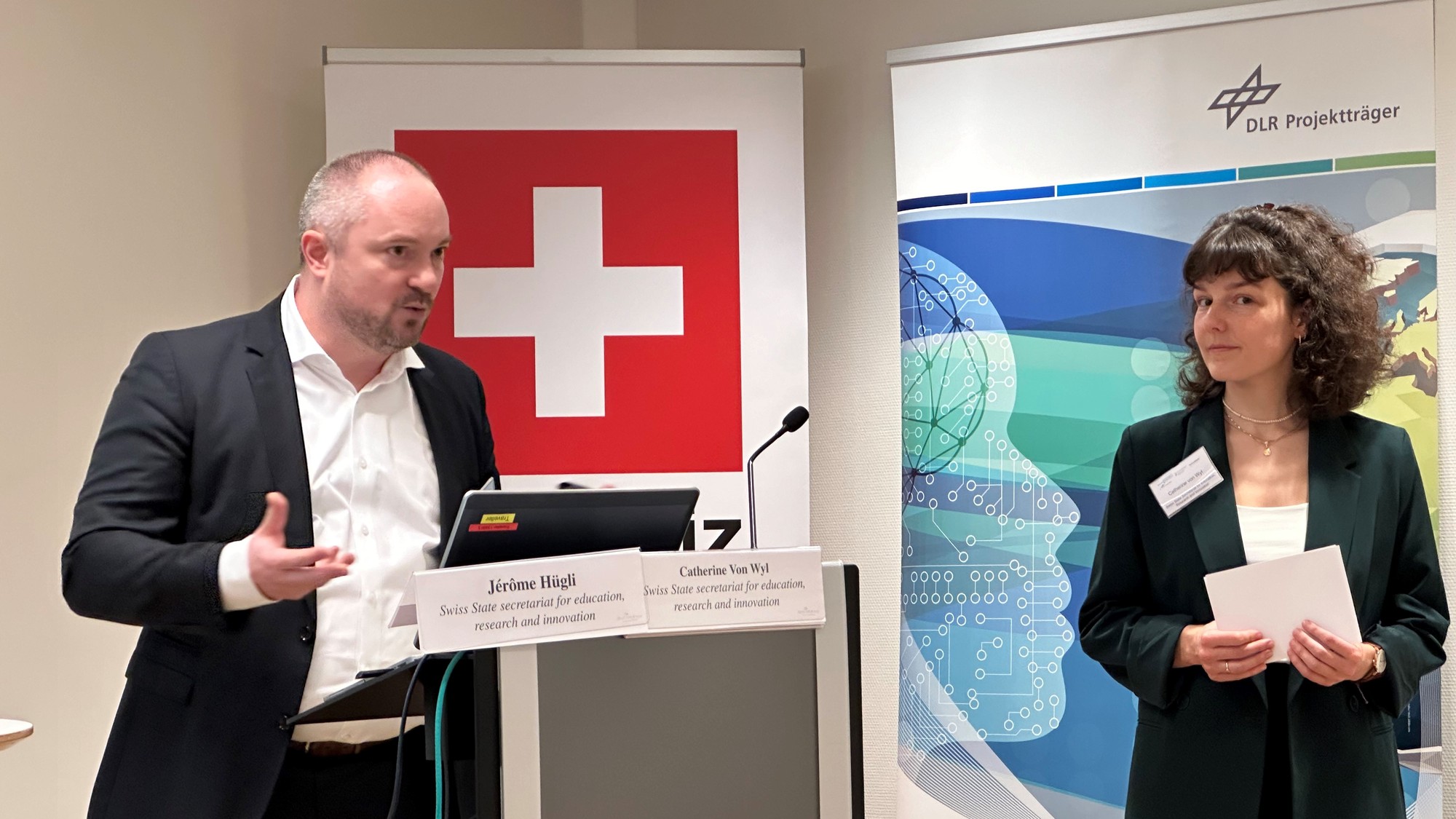
VET in Europe: Shaping a more inclusive future of VET in times of transition
The EU designated the period from May 2023 to May 2024 the Year of Skills with the aim of giving an impetus to lifelong learning, empowering people and companies to contribute to the green and digital transitions, supporting innovation and competitiveness. In this context, the DLR Project Management Agency, SwissCore and the Swiss Mission jointly organized an event on ‘Vocational Education and Training (VET) in Europe’. Around 60 actors from the Swiss and EU VET sectors gathered for the discussions.
In her keynote speech, Anna Barbieri, Team Leader for Apprenticeships at the Directorate-General for Employment, Social Affairs and Inclusion (DG EMPL) of the European Commission (EC), emphasized the importance of VET for acquiring adequate work competences as well as transversal skills seen as necessary by employers. She called for ensuring a better learning experience to improve the attractiveness of VET and presented the respective instruments of the EC. Subsequent national examples of VET experience included Switzerland, Germany and Latvia. Jérôme Hügli and Catherine von Wyl from SERI presented best practices supporting skills shortage and the digital and green transition from the Swiss VET system using the example of the newly created solar installer apprenticeship. They were joined by Frank Petrikowski from the Permanent Representation of Germany to the EU, who explained how private companies help the public sector to modernise VET. Maija Zvirbule elaborated on the challenges for VET in Latvia related to attractiveness and quality assessment.
The panel with VET policy makers, researchers and trade unions elaborated on the challenges for VET. Mergim Jahiu from the Swiss Federal University for VET (SFUVET), called for including digital tools into VET teaching to make learners fit for a changed working environment. Working environments differ around the world and countries need to adapt their own training systems explained Andreas Müller from DLR. According to Grace Papa, European Federation of Trade Unions, formation in skills is only possible, if work in a certain sector is recognized as such. This is not always the case in the domestic and hospitality sectors and leads to a lack of available courses. The panel concluded that future-proof VET needs substantial government efforts, a dialogue with trade unions and workers, as well as a flexible setting that allows to integrate mobility components and innovation into teaching. At its basis lies skills-recognition and the inclusion of and outreach to all potential VET-learners.
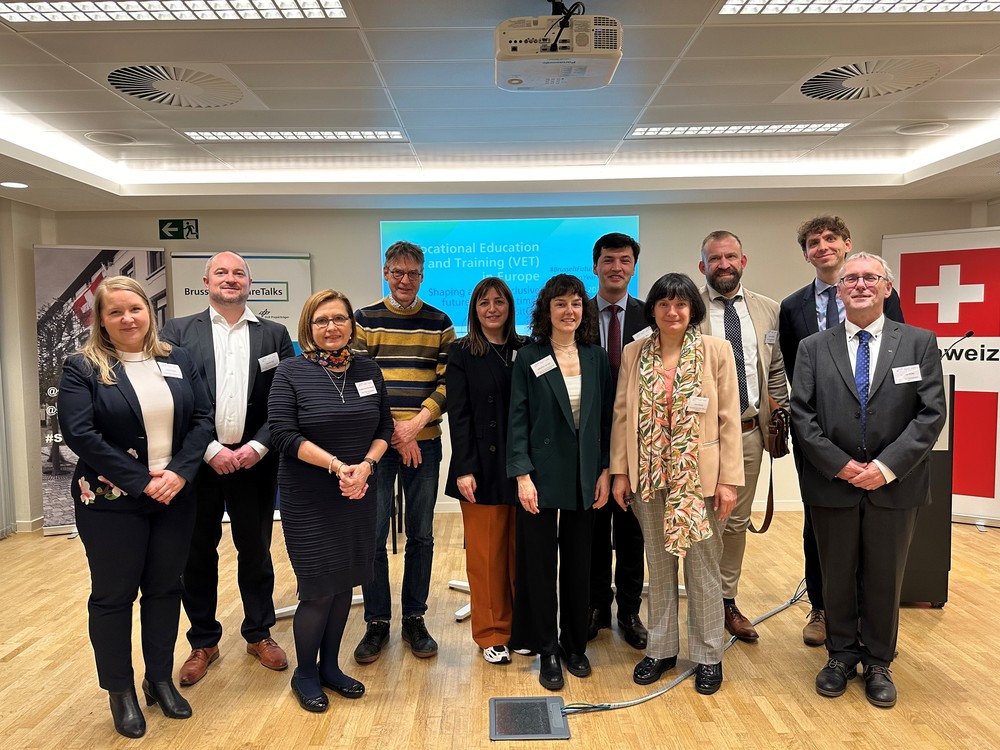
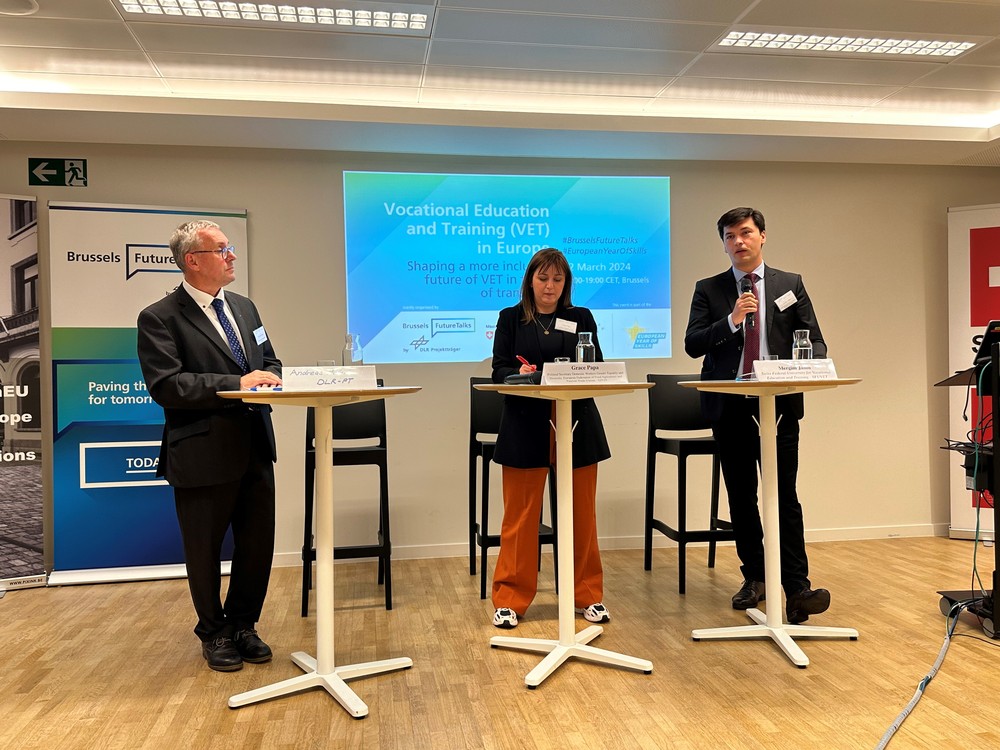
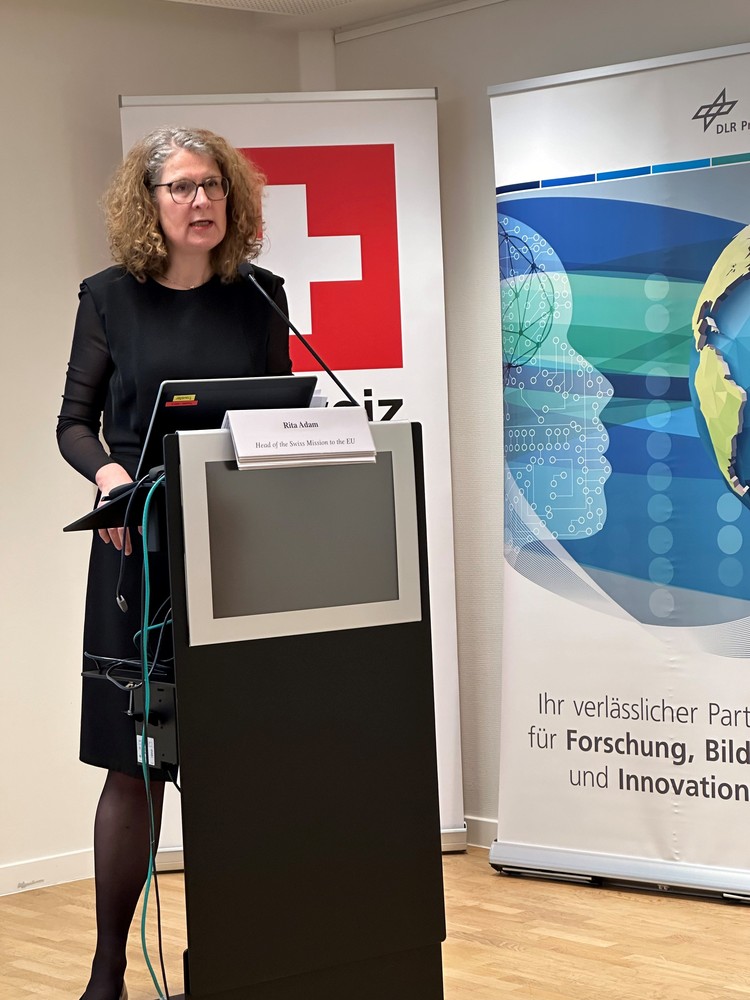
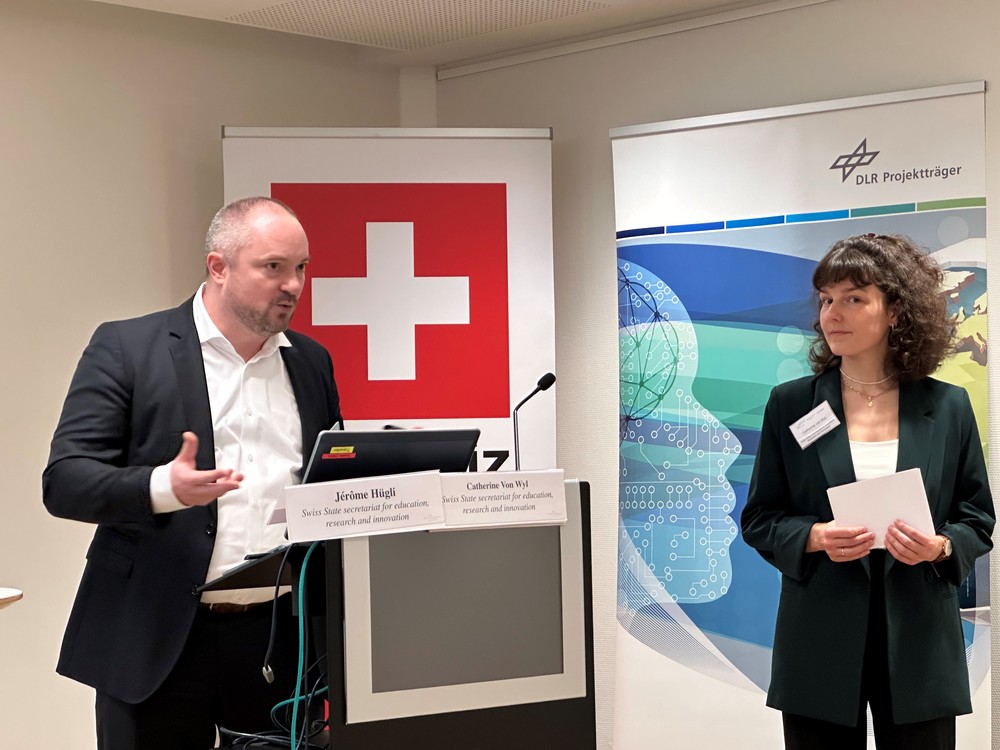
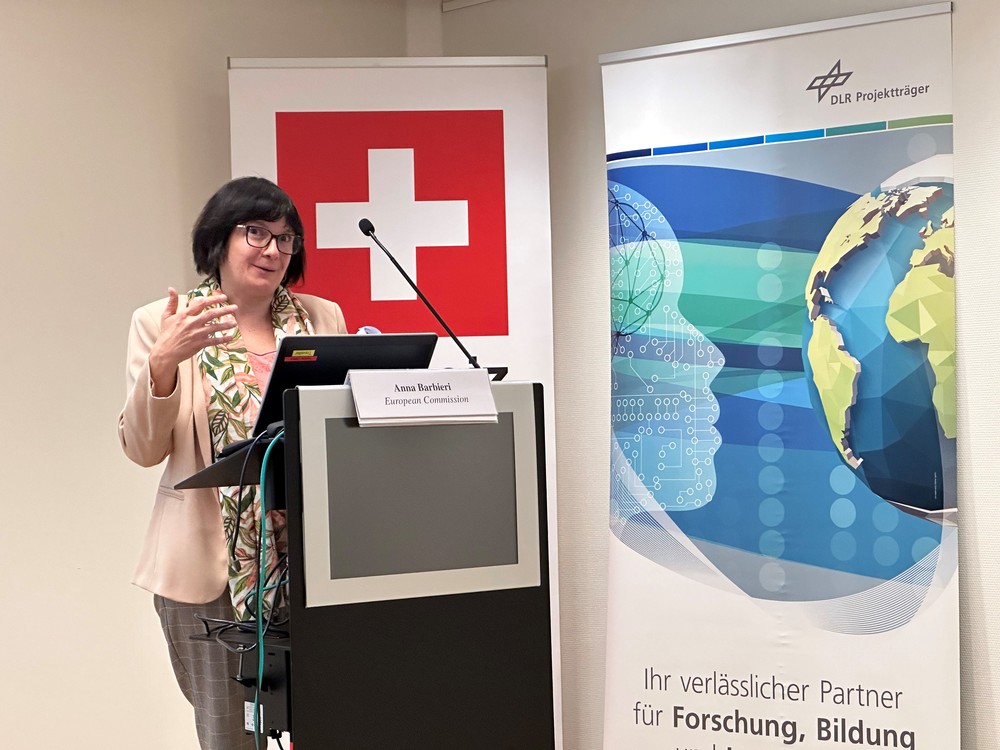
Copyright all pictures: Swiss Mission to the EU